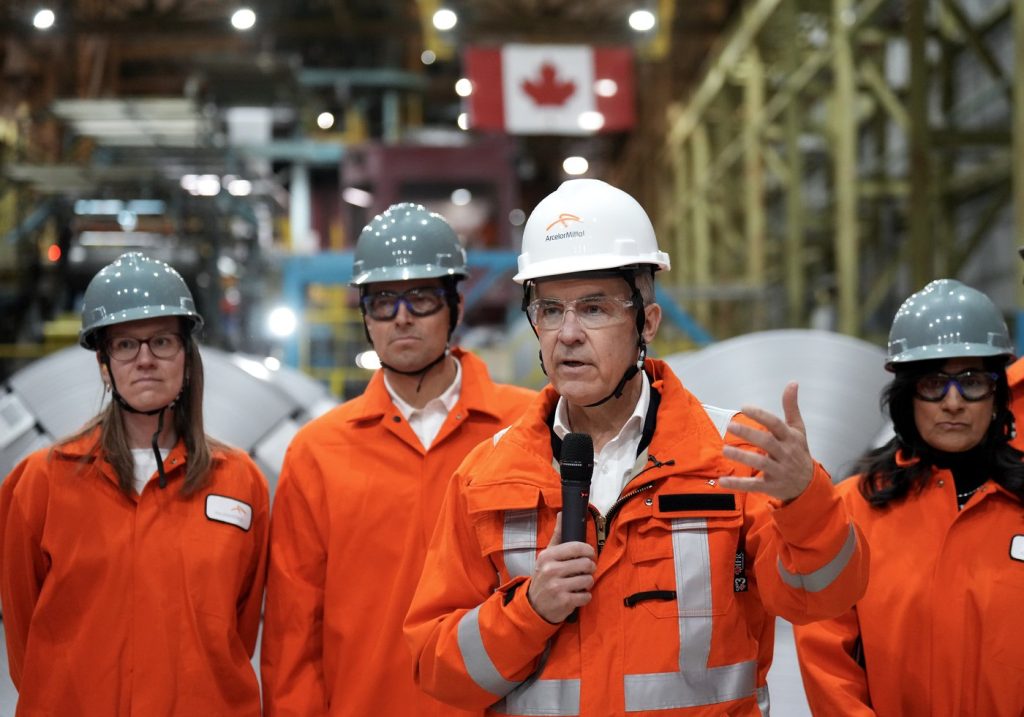Canada is entering a critical economic phase under the leadership of Prime Minister Mark Carney, following the Liberal party's recent election victory that left them four seats short of a majority. In his victory speech, Carney expressed a determination to "build baby, build" and emphasized the need for bold actions and swift execution to navigate the challenges ahead.
Despite the optimistic tone set by Carney, economists warn that governing with a minority government could introduce distractions and increased uncertainty. This scenario complicates efforts to address immediate issues like U.S. tariffs while also addressing long-term challenges such as improving productivity, diversifying trade, and fostering a more ambitious Canadian economy. Michael Dobner, PwC Canada’s national leader of economics and policy practice, noted that the minority government's status is not ideal given the pressing economic circumstances Canada faces.
Carney and the Conservatives have underscored the importance of improving regulations and building infrastructure to support business growth. However, Dobner expressed concern that the New Democratic Party (NDP), which holds the balance of power, may prioritize voices advocating for slower processes, thus hindering the rapid action required for the country's self-sufficiency. Alongside infrastructure development, Carney also aims to diversify trade, but Dobner pointed out that Canada must first develop the necessary intellectual property and manufacturing capacities to compete globally.
While Canada currently holds more free trade agreements than any other G7 country, Dobner emphasized that merely having these agreements is insufficient; the true challenge lies in possessing viable products to offer the world. Convincing businesses to invest in innovation and productivity-enhancing technologies faces additional hurdles due to the economic slowdown fueled by U.S. tariffs imposed by President Donald Trump.
Recent economic data indicated a contraction in the U.S. economy by 0.3% in the first quarter of 2025, with Canada also experiencing a decline of 0.2% in February. Dawn Desjardins, chief economist at Deloitte Canada, commented on the pervasive sense of nervousness affecting consumer and business confidence. This anxiety suggests that consumers may refrain from spending on significant purchases, while businesses remain tentative about investing due to uncertain projections regarding future sales.
According to forecasts from Deloitte, Canada’s GDP could decrease by 1.1% in the second quarter and 0.9% in the third quarter, with the unemployment rate possibly reaching 7.5%. An economic slowdown in the U.S. will likely reduce demand for Canadian exports, and the ongoing slump within Canada’s housing market provides little cause for optimism, according to Desjardins.
In response to these economic pressures, Carney has announced a substantial stimulus package totaling $129 billion in new commitments over the next four years. Although Canada has some fiscal capacity to increase spending, Desjardins cautioned that the country’s rising gross debt necessitates targeted and strategic investment. The long-term vision of the Liberal government includes significant investments in defense, housing, and trade-related infrastructure to stimulate private investment, aiming to leverage $150 billion in public funds to generate $500 billion in overall investment over five years.
While the proposed plan appears promising for bolstering long-term growth, Rebekah Young, head of resilience economics at Scotiabank, highlighted the numerous challenges ahead, particularly those posed by the minority government structure. Young expressed skepticism about the full realization of the proposed economic effects, noting that the complexities of Canada’s multi-jurisdictional framework often delay infrastructure projects, particularly energy-related initiatives in a polarized political environment.
As Carney navigates the challenges of a weakening economy and international headwinds, he must also motivate businesses to think big amidst considerable uncertainty. Young warned of the potential for a rapid and chaotic economic downturn if these issues are not addressed effectively.











